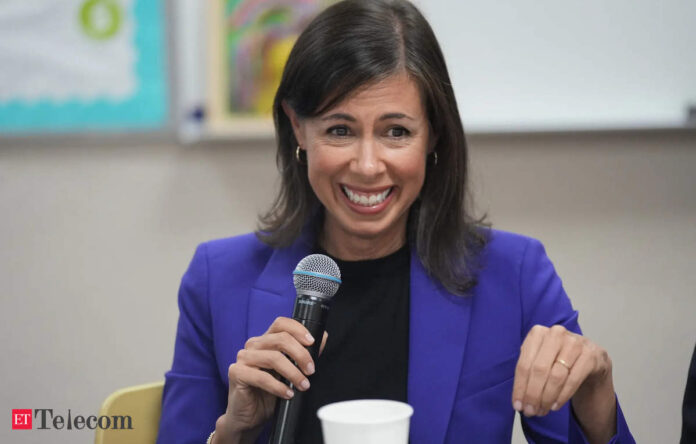In Short:
The Cellular Operators Association of India (COAI) wants over-the-top (OTT) platforms, like video and voice services, to follow the new Telecom Act 2023 regulations. They argue that all communication services should be equally regulated for safety and consistency. However, the Broadband India Forum disagrees, claiming OTTs already follow existing laws and that the COAI’s demands could hurt competition and consumers.
NEW DELHI: According to the Cellular Operators Association of India (COAI), any over-the-top (OTT) platform that offers communication services, including video and voice telephony and messaging, must comply with the laws established under the new Telecom Act 2023. The association has urged for regulatory measures that compel OTT services to contribute financially to the development of the underlying network infrastructure. This request has been met with strong resistance from the technology sector, spearheaded by the Broadband India Forum (BIF).
Regulatory Compliance for OTT Platforms
As stated by COAI, video calling, voice calling, and messaging services fall within the defined communication services category, necessitating uniform regulation. Several applications, including OTT platforms, offer these services either as standalone features or as part of a wider service portfolio.
“Given that the Telecom Act governs communication services, it is imperative that any OTT communication service provider delivering these services adheres to the laws established under the Telecom Act, 2023,” remarked SP Kochhar, Director-General of COAI. He emphasized that this regulation would ensure consistent enforcement across all entities providing similar communication services, irrespective of the underlying technology.
Opposition from the Technology Sector
COAI, which represents major telecom operators such as Reliance Jio, Bharti Airtel, and Vodafone Idea, faces counterarguments from the technology industry. Opponents assert that OTT communication services should remain exempt from the Telecom Act, 2023 as they are already subject to regulation under several existing laws, including the IT Act, 2000, Indian Penal Code, 1860, Consumer Protection Act, 2019, and DPDP Act, 2023.
In response, COAI branded this counter-argument as “misleading,” emphasizing that their request pertains solely to regulatory oversight of communication services explicitly covered under the Telecom Act, 2023. “It is important to note that telecom service providers, which are governed by the Telecom Act, are also regulated by all of the aforementioned laws,” stated Kochhar.
Quality of Service and Security Concerns
COAI clarified that telecom operators are governed by the Telecom Regulatory Authority of India (TRAI), which enforces quality of service (QoS) standards and can impose substantial penalties for non-compliance. Additionally, telecom providers are required to adhere to the Telecom Commercial Communication Customer Preference Regulations, 2010, and have made significant investments in preventing unsolicited communications as mandated by regulatory requirements. They have also invested heavily in the infrastructure needed for lawful interception and monitoring.
“Despite these investments, the unregulated application-based communication services being provided pose a significant security threat, as they bypass established regulatory frameworks,” Kochhar noted. He further asserted that the existing QoS and security regulations do not apply to other communication service providers, including specific OTT applications, which is contrary to the principle of ‘same service, same rules.’
COAI insists that unlike telecom operators, these OTT communication service providers are not required to comply with QoS and security regulations, thus gaining an unfair advantage over the compliance mechanisms and undermining regulatory efforts aimed at maintaining security standards.
Industry Response
b>TV Ramachandran, President of the Broadband India Forum, countered on Thursday, labeling the claim by telecom operators that current QoS norms set by TRAI are “too stringent” as misleading. “The proposal from telecom companies is a continued attempt to mislead their customers and the general public by presenting untenable arguments for subpar quality and imposing additional financial burdens on other sectors while concealing inefficiencies and monopolistic behaviors within the telecom industry,” he stated.
Ramachandran cautioned that such moves, if permitted, would ultimately harm consumers, suppress competition, and obstruct the growth of the digital ecosystem in India.





